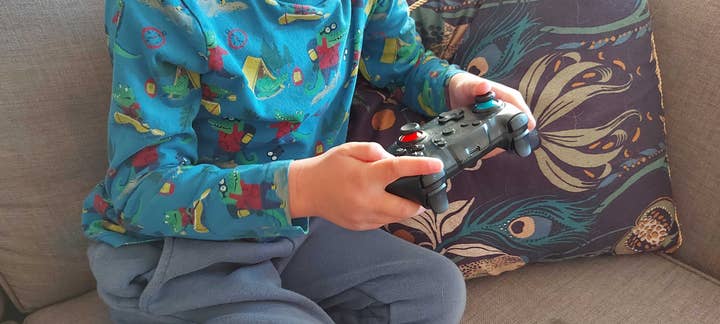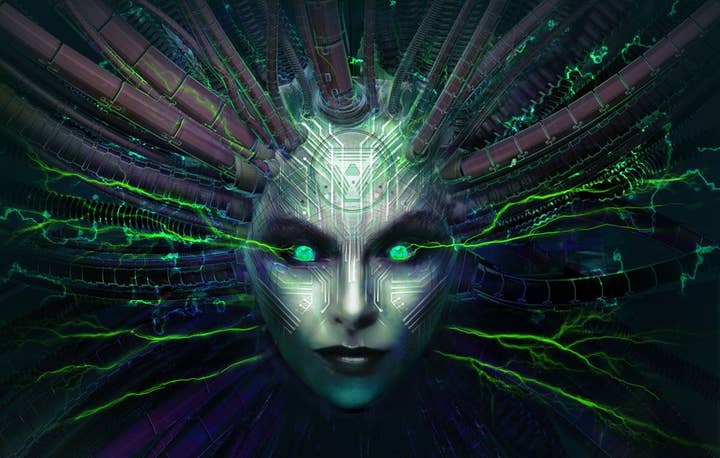Legal trends for the games industry to watch in 2023 | Opinion
Dr. Andreas Lober and Luca Guidobaldi analyse the topics that games companies need to be aware of this year - and revisit their 2022 predictions
Sign up for the GI Daily here to get the biggest news straight to your inbox
One year ago, we made some predictions on legal trends for 2022. Now it is time to look back and see where we have been right and where we have been wrong – and make some new predictions for 2023.
So, what we have predicted for 2022 was the following:
1. Metaverse (+/-)
What we predicted:
The Metaverse "will revive a lot of legal questions that were first discussed when virtual worlds were a hot topic: Rights in virtual property, personality rights of avatars, interchange-ability of virtual objects, and who is responsible if they lose their value (for whatever reason)."
We also said that the Metaverse "will certainly generate more investments and big technology advancements."
What happened:
The Metaverse certainly made headlines in 2022 but maybe not quite as we had expected – partly because many users and observers where underwhelmed by what Mark Zuckerberg without trousers presented to the world (well, literally, no legs and thus no trousers to be seen but that was just his avatar, of course).
The big Metaverse players have not given up their vision, so the legal challenges remain
This seems to have cooled down the public excitement. In the meantime, in September the EU Commission boasted to launch a "plan to thrive in the Metaverse" and even threw a "virtual party" at the end of November to establish its own presence in the Metaverse and promote some of its latest funding initiatives in the sector: however, in total only six people showed up.
What will happen in 2023:
While the topic might no longer look as hot as it did a year ago, the big players of the Metaverse game certainly have not given up their vision, so the legal challenges remain – and the Digital Services Act (DSA) will not make things any easier. This is also because the DSA and, more generally, the recently enacted EU legislation for the Internet and the digital world, are pushing for an environment where consumer safety, access and interoperability are absolute prerequisites. The EU clearly has the ambition to regulate the internet – and thus the Metaverse. We will talk more about the Digital Services Act later.

2. NFTs (+)
What we predicted:
"Many observers say they are overly hyped. We're sure they won't live up to all of their promises – but we're equally sure they won’t go away." Trading virtual objects for real money involves challenges when the balance of games changes, when game operations are discontinued, and when randomized games mechanics become more problematic.
What happened:
We think we got a point. Some major publishers have either been unsuccessful in integrating NFTs into game dynamics or prompted strong reactions from players who feel exposed to possible cheating and "cash grabs." Players want to play, not be forced to act as investors do; they do not want to care about what they could do with (or what would happen to) their NFT outside the game environment if the publisher disappears or the game platform is closed.
Players want to play, not be forced to act as investors do; they don't want to care what happens to their NFT if the publisher disappears
The "NFT=scam" equation has become stronger in 2022, due to widely known crypto scandals (especially, the fall of FTX). Also, tax and legal disputes around Europe about what kind of rights (if any) might be attached to an NFT have further diminished the overall attractiveness of tokens, as well as the chance to safely integrate them into games. An Italian court recently established that the unauthorized reproduction of a third-party trade-mark in a tokenized photograph may even constitute trademark infringement.
However, it now looks as if a new game-ish NFT ecosystem is about to emerge. Collectible card, Minecraft-style or sandbox games seem to be more proper gaming environments for a safer NFT integration which would not completely scare players (even while attracting some people who play just to gain money).
What will happen in 2023:
Many investors into tokenized gaming will lose a lot of money, but some will get very rich. Tokenized games which become successful must expect regulators to look closer, too: tokens might also be regulated under banking laws (the question is whether they are just "utility tokens").
Taxation is another challenge. The Italian tax authority affirmed on two occasions during 2022 that staking crypto-assets in a digital wallet cannot be held as a tax-exempt activity and that wallet holders are not exempt from paying taxes on crypto transactions even if the 'location' of the wallet is outside the country.
Since NFTs are mostly bought and traded via cryptocurrencies, these issues will become crucial, and there might also be other regulatory restraints and concerns.
3. Terms of Use / EULAs (+/-)
What we predicted:
"All games companies doing business in Europe will have to revise their general terms and conditions as the EU pieces of legislation that are part of the 'New Deal for Consumers' will entail major changes for consumer protection law."

What happened:
Most games companies should have done their homework and revised their Terms of Use / EULAs. That's not surprising, as sanctions have become more severe and may scale up to 4% of the worldwide yearly turnover of the company or its group.
Enforcement activity, however, is still rather limited – but German Consumer Protection Organizations, for example, are already chasing companies who have not properly imple-mented the "unsubscribe" process (so far, a specific German requirement) and the consum-er protection agencies of several EU member countries are preparing big enforcement activities for 2023, now that the EU Consumer Package (together with DSA and DMA) has become a truly integrated system and has achieved the force of law throughout the whole EU.
What will happen in 2023:
We expect more enforcement activity with regard to the existing rules, and the Digital Services Act will impose new requirements for Terms of Use for online platforms (please see below) and, partly also for other intermediary services such as using child-appropriate language for services which are directed at or mainly used by minors, and making unsub-scribing from a service as easy as signing up for it.

4. Unfinished products, product description, onscreen texts, and right of withdrawal (+/-)
What we predicted:
"Many publishers blame the pandemic for increased difficulties in finishing AAA titles in time and in quality"
"The new provisions prohibit hidden marketing practices - especially when targeting children and teenagers, including direct exhortations to purchase - and urge absolute transparency for in-game purchases and price, characteristics and role of virtual items within the game dynamics and their out-of-the game value"
"All games with in-game monetization will have to adapt the order process and the handling of the right of withdrawal."
What happened:
That was a mixed bag, and the conclusion is just as mixed. As expected, many companies seem to have done their homework, and revised their onscreen texts with product descrip-tions, as well as the right of withdrawal.
While not technically based on the European concept "right of withdrawal", the FTC in its case against Epic Games argued (amongst other things) that it was too easy to buy and too difficult to cancel purchases in Fortnite.
The FTC decision [about Fortnite means] other games companies will face scrutiny from regulators
Contrary to our expectation, we did not see massive complaints regarding unfinished products ending up as legal disputes – maybe consumers got so much used to bad service in all aspects of life that unfinished games were not the main concern.
What will happen in 2023:
Quite frankly, Fortnite may be one of the most popular games of our time but a lot of mechanisms the FTC disliked can be found in plenty of other games. The way being paved by the FTC decision, other games companies will face scrutiny from FTC or other regulators as well. Even though the rules are different, we should certainly expect increased attention and similar action by enforcement authorities across the EU.
5. Free-to-play and paying with data (+/-)
What we predicted:
"Paying with data will, to a large extent, be treated the same way as 'paying with money'."
What happened:
The 'paying with data' issues caused headaches to lawyers and companies (with questions such as "Is optimizing a product through telematics considered to be 'paying with data'?" or "Why does the official German boilerplate text for the right of withdrawal still not cover 'paying with data'?"), but enforcement activity around 'paying with data' as such remained limited at best.
What will happen in 2023:
Sooner rather than later, there will be increased enforcement activity regarding 'paying with data' but for all companies who have done their homework it should not be a major issue for 2023 anymore.
6. Clones and other IP disputes (+)
What we predicted:
"IP disputes will become even more important… We can also foresee that a lot of IP contro-versies will spark while the Metaverse is built and surely once it will be established, and even when VR and AR technologies will become more broadly accessible to the greater public."

What happened:
We think we can make a tick here as well – as evidenced by Riot Games vs Moonton, Riot Games vs. NetEase, and Bungie vs. AimJunkies.
We also see that many new trademark registrations from major brands now cover the Metaverse; EUIPO (the European trademark office) has even issued official guidelines on the issue and the new version of the Nice Classification (entering into force on January 1st, 2023) officially lists "digital goods linked to NFTs" as a product sub-category of Class 9.
In any case, it will always remain true that the unauthorized reproduction and use of a trademark, a design, a product or of a work of art, when it is made for commercial purpose, in order to cause damage to the original right-holder and/or to free-ride on its goodwill and reputation will constitute an illegal act irrespective of the digital platform where it would happen, so we should expect an increasing number of disputes as soon as the new conver-gent digital environment will be developed and actually thrive.
What will happen in 2023:
We expect IP disputes to remain a top trend. Cloning is an ongoing concern [Clone culture and its continuous impact on indie developers | GamesIndustry.biz], and the cases mentioned above are just the ones that made the headlines. There are many more – especially in the app stores, copycats of successful games seem to be the rule rather than the exception, and the creators of the original games will continue to enforce their IP rights.
7. Market dominance and platforms (+)

What we predicted:
"Antitrust laws all over the world and their application by competition authorities are getting tougher for dominant companies."
What happened:
Not a lot of major new developments in the Epic Games vs. Apple and Google case, but the Digital Markets Act was finally adopted in September 2022, imposing many new obligations on gatekeepers.
What was beyond our wildest dreams, though, was the merger-mania at the beginning of the year, with Microsoft's planned acquisition of Activision Blizzard giving cartel offices around the globe quite a large chunk to chew – the deal is examined for example by the FTC, the European Commission, and the UK Competition and Markets Authority.
What will happen in 2023:
The Digital Markets Act seeks to limit the market power of Gatekeepers (such as Google, Apple, and Facebook) to help companies that depend on them – which may include game developers.
However, the Microsoft/Activision Blizzard case might have an even bigger impact. We will learn more on how cartel offices define the relevant markets in the games sector. This will shape how antitrust law is applied on the games industry for years to come.
[The Microsoft/ABK merger] will shape how antitrust law is applied on the games industry for years to come
So far, Call of Duty is a focal point of interest. For some observers, it has come as a surprise that the competition authorities are focusing so much on this title and see a risk of Microsoft becom-ing dominant – while some felt that Sony has been the dominant player so far. The case, though, should also provide an answer to the question of what the relevant product market is – is it limited to consoles, does it include Switch, PC, and streaming?
The relevance of the market definition, however, goes far beyond the Microsoft deal. Dominant companies must not abuse their position and will find it hard to make acquisitions which further strengthen their position. Before being able to determine whether a company is dominant, though, the relevant market must be clear: if the authorities conclude that relevant market is comprised (only) of current-gen consoles excluding Nintendo Switch, for instance, the answer to the 'dominance' question will not be the same as if they assume that the relevant market includes all consoles (including Nintendo Switch) as well as PCs.

8. Youth protection beyond blood and violence (+)
What we predicted:
We told you that "interaction risks" in games (toxic behavior, cyberbullying, monetization) would be high on the agenda.
What happened:
We can safely say we have been correct. Regulators have taken action against several games companies. The FTC vs. Epic Games case is, to a large extent, based on the voice and text chat functions having been open by default for kids. This decision is just the tip of the iceberg. Many other games companies had discussions with regulators about similar topics.
On the other hand, some legislative projects or at least their implementation moved slower than we had expected (the Online Safety Bill discussions seem to be a never ending story; Germany's new regime was only recently implemented as of January 1, 2023).
Online platforms will have a lot of new obligations – such refraining from 'dark patterns'
What will happen in 2023:
Online games and free-to-play games companies in particular will have to watch the new developments very closely. These games rely on mechanics which keep users engaged (also financially), and it is just these mechanics that are under examination.
9. Data protection (-)
What we predicted:
2022 will be the year when we see the first large GDPR case against a games company.
What happened:
We were wrong. So far. Many games companies were having discussions with their data protection officers but none of them was nasty enough to hit the headlines.
What will happen in 2023:
Games companies will have to keep up their efforts, even if data transfer from the EU to the US might, becomes a little easier with a bit of luck.
New Trends
1. Dark patterns
It was somewhen in 2022 when the term "dark patterns" started to spawn in political and legal discussions just as minor monsters spawn in your average MMOG. The term, however, only found its way into legislation with the Digital Services Act: "Providers of online platforms shall not design, organize or operate their online interfaces in a way that deceives, manipulates or otherwise materially distorts or impairs the ability of recipients of their service to make free and informed decisions."
Now, the big question is when an online interface "deceives or manipulates" the user. Some of the examples which are given in the recitals of the Digital Services Act are relevant for games companies: Making use of exploitative design choices, or presenting choices in a non-neutral manner, such as giving more prominence to certain choices through visual, auditory, or other components when asking the recipient of the service for a decision – this could include using different colors (such as red and green) for different options.
Another example is repeatedly asking a user to make a choice where such a choice has already been made, or making the procedure of cancelling a service significantly more cumbersome than signing up to it.

2. Online platforms
We have just said that the Digital Services Act prohibits dark patterns for online platforms. This brings us to the next question: Online platforms. After all, was not the Digital Services Act the law that was supposed to curb illegal content on online platforms like Facebook or YouTube, so that game companies had nothing to worry about?
Well, maybe that was the original intention. But the definition of online platforms is rather broad.
In simple terms: A service which allows users to store information and share it with the public (unless it is just a minor or ancillary feature). Information might include text and visuals which can be shared over a social network, of course – but many games and games-related services with online functionalities allow users to do just that.
The increasing improvement of artificial intelligence will be a hot topic in legal discussions
In this case, it must be carefully examined whether the service is an online platform, as opera-tors of online platforms will have a lot of new obligations – refraining from dark patterns, giving users an explanation on why they have been banned are just two examples.
Plus, personalized advertising is strictly regulated – for instance, key parameters must be disclosed, and targeting minors is completely prohibited (i.e. not even allowed with the consent of the users and their parents).
3. Esports
The popularity of Esports has been on the raise for years. It is therefore surprising that there are relatively few court cases.
The political discussion is mostly about the question whether Esports should be treated as sports – yet there are a lot of other legal issues: Visa and late working hours of (partly underage) Esports athletes, tournament rules (especially in the light of consumer protection law) and privacy law (when commercially marketing the tournament), match-fixing scandals, and inappropriate behavior by (semi-)professional Esports athletes and stakeholders are just some examples.
At least some of these issues will surface and be more widely discussed in 2023.

4. Artificial intelligence and copyright
The increasing improvement of artificial intelligence will be a hot topic in legal discussions. One of the major legal subjects will be copyright law. For example, an eleven-year-old has used the AI ChatGPT to create a text adventure in the world of Harry Potter. The art-software DALL-E allows the user to create digital images from natural language descriptions while feeding its algorithm with public datasets.
This will have a particular impact on the design of video game assets in the future, and will raise questions such as who is the owner of AI generated content and how artists can protect their artworks from being utilized by artificial intelligence.
5. Lootboxes
The lootbox discussion will not stop. Not. At. All.
Dr. Andreas Lober is a partner in the Frankfurt office at the law firm ADVANT Beiten. Luca Guidobaldi is a partner in the Rome office at the law firm ADVANT Nctm. Both have been advising video game companies for many years.
Sign up for the GI Daily here to get the biggest news straight to your inbox
